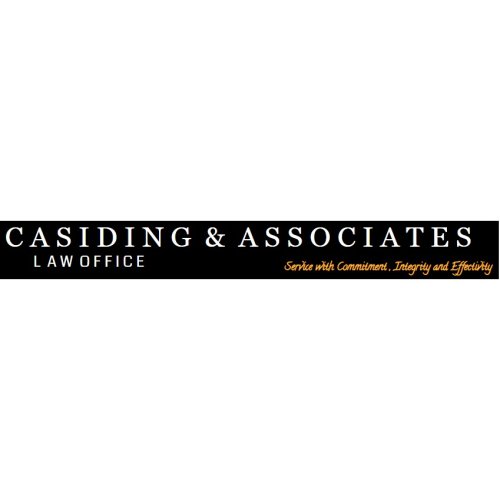Best Government Relations & Lobbying Lawyers in Philippines
Share your needs with us, get contacted by law firms.
Free. Takes 2 min.
Or refine your search by selecting a city:
List of the best lawyers in Philippines

Dagsaan Monterde Castillo Law and Notary Public (DMC LAW)
15 minutes Free ConsultationAbout Government Relations & Lobbying Law in Philippines
Government Relations & Lobbying in the Philippines involves the interaction between private entities and government bodies aimed at influencing policy decisions, legislative processes, and regulatory measures. This field is essential for companies, organizations, and individuals seeking to promote their interests through governmental channels. The practice is guided by specific laws and ethical standards designed to enhance transparency, prevent corruption, and ensure that lobbying activities are conducted fairly.
Why You May Need a Lawyer
Engaging in Government Relations & Lobbying can be complex, given the intricate interplay of legal, ethical, and procedural factors. You may need a lawyer if:
- You intend to influence legislation or policy developments and need strategic advice.
- You require assistance in navigating compliance with lobbying regulations.
- Your organization seeks to establish official communication lines with government officials.
- You face potential conflicts of interest or ethical dilemmas.
- You encounter legal issues related to governmental contracts or projects.
Local Laws Overview
In the Philippines, lobbying is primarily regulated through laws like the Anti-Graft and Corrupt Practices Act and specific provisions in the Revised Penal Code. Essential aspects of these laws include:
- Disclosure Requirements: Lobbyists must often disclose their activities and objectives when engaging with public officials.
- Gift and Donation Restrictions: Regulations limit the value and nature of gifts given to government officials to avoid corruption.
- Ethical Guidelines: Professionals involved in lobbying are expected to adhere to ethical standards to prevent undue influence.
Frequently Asked Questions
What is the legal definition of lobbying in the Philippines?
Lobbying generally refers to actions intended to influence government decisions, often regarding legislative amendments or policy development. It includes both direct communication with officials and strategic advocacy plans.
Do I need to register as a lobbyist?
While there may not be a formal lobbying registration process like those in other countries, specific lobbying activities may require compliance with public transparency standards set forth under various laws.
Can government officials engage with lobbyists?
Yes, government officials can engage with lobbyists; however, they are bound by ethical standards and must ensure such interactions do not lead to conflicts of interest.
What are the penalties for non-compliance with lobbying laws?
Penalties can include fines, imprisonment for violations of anti-corruption laws, and disqualification from holding public office, depending on the nature and severity of the infraction.
Are there any specific guidelines for corporate lobbying?
Corporate lobbying is subject to general anti-corruption laws, with additional measures sometimes imposed depending on the industry, especially in sectors like natural resources, finance, and telecommunications.
How do transparency rules affect lobbying activities?
Transparency rules require disclosure of lobbying intentions, affiliations, and sometimes financial expenditures, ensuring that public policy remains open and unbiased.
What is the role of a government relations consultant?
Government relations consultants provide strategic advice and execution plans for effectively engaging with government stakeholders, maintaining compliance, and aligning organizational goals with public policy initiatives.
What constitutes a conflict of interest in lobbying?
A conflict of interest occurs when a person's private interests could improperly influence their professional duties, particularly if they stand to gain personally from a decision they can sway.
Are lobbyists required to report their activities?
Lobbyists may need to report their activities to comply with transparency and accountability standards, which could involve detailing objectives, beneficiaries, and financial aspects of lobbying efforts.
How can I ensure my lobbying efforts are ethical?
Engage with legal professionals who specialize in government relations; comply with all relevant legal and ethical standards, and foster a culture of transparency and accountability within your organization.
Additional Resources
Here are some resources that can provide valuable insights or assistance in government relations and lobbying in the Philippines:
- Office of the Ombudsman: Oversees anti-corruption efforts and promotes transparency.
- Philippine Chamber of Commerce and Industry: Offers guidance and networking opportunities for navigating governmental relations.
- Legal and Compliance Departments within relevant government agencies.
Next Steps
If you find yourself in need of legal assistance in government relations and lobbying, consider the following steps:
- Consult with a lawyer specialized in government relations and lobbying law in the Philippines.
- Identify and understand applicable local laws and regulations relevant to your situation.
- Compile detailed documentation of your objectives, prior interactions, and intended lobbying efforts.
- Contact professional organizations or consulting firms for advice and representation.
Taking these steps will help ensure that you are adequately informed, compliant, and prepared to achieve your lobbying objectives ethically and effectively.
Lawzana helps you find the best lawyers and law firms in Philippines through a curated and pre-screened list of qualified legal professionals. Our platform offers rankings and detailed profiles of attorneys and law firms, allowing you to compare based on practice areas, including Government Relations & Lobbying, experience, and client feedback.
Each profile includes a description of the firm's areas of practice, client reviews, team members and partners, year of establishment, spoken languages, office locations, contact information, social media presence, and any published articles or resources. Most firms on our platform speak English and are experienced in both local and international legal matters.
Get a quote from top-rated law firms in Philippines — quickly, securely, and without unnecessary hassle.
Disclaimer:
The information provided on this page is for general informational purposes only and does not constitute legal advice. While we strive to ensure the accuracy and relevance of the content, legal information may change over time, and interpretations of the law can vary. You should always consult with a qualified legal professional for advice specific to your situation.
We disclaim all liability for actions taken or not taken based on the content of this page. If you believe any information is incorrect or outdated, please contact us, and we will review and update it where appropriate.
Browse government relations & lobbying law firms by city in Philippines
Refine your search by selecting a city.
















